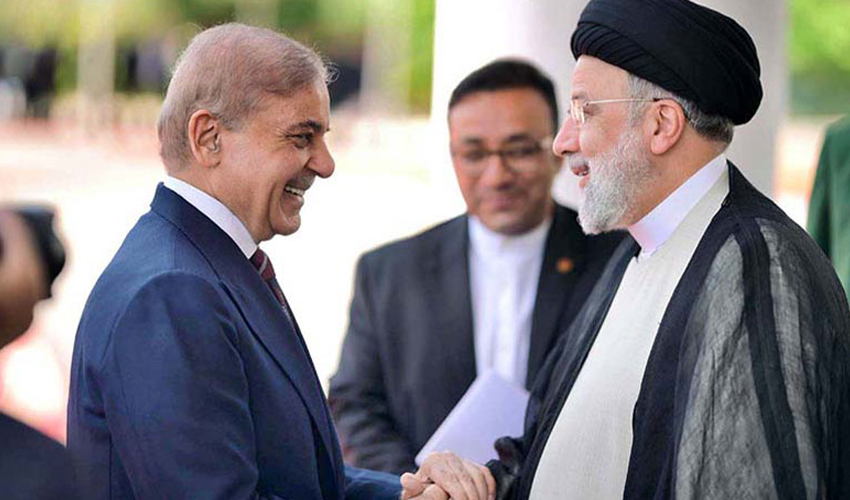Pakistan, Iran vow to expedite free trade deal, enhance border harmony: Joint declaration
Iranian President Raisi wraps up three-day visit to Pakistan
Iranian President Raisi wraps up three-day visit to Pakistan
No loss of life or property was reported due to the earthquake
Country’s control rooms dealt with over 200,000 distress calls from residents
Video which quickly went viral captured a moment of joy and celebration at wedding
Balochistan CM Bugti extends congratulations to Rind for his remarkable feat against India
Actress is facing criticism from 'fake news' circulating on social media
Madiha previously announced her divorce in November 2022, ending her union with Hassan Nauman
Several women journalists and media workers have fallen victim to spousal killings
Accused shifted to Rawalpindi
Iranian President Raisi wraps up three-day visit to Pakistan
Payments were made in the form of capacity charges which were received from the consumers in the electricity bills
Provincial Minister of Transport Bilal Akbar said 110 buses are under the import phase
Muhammad Ali Malkani said that vigilance teams should play an effective role
Virtual gaming takes center stage as Pakistan hosts esports championships
A case has been registered against the accused and the investigation is underway.
Habib also stresses imperative of enhancing relations with neighbouring countries, notably India
Balochistan CM Bugti extends congratulations to Rind for his remarkable feat against India
Video which quickly went viral captured a moment of joy and celebration at wedding
Honda and Boston Dynamics have been developing humanoid robots for several years
Country’s control rooms dealt with over 200,000 distress calls from residents
Doctor says habit of eating outside rather than home-cooked meals has also affected children's health
Study discovers that sound coming from a disturbed plant could be heard over a meter away
Implementing reporting standards 18 has its challenges, but offers long-term benefits

